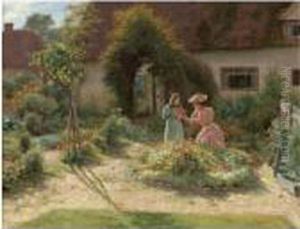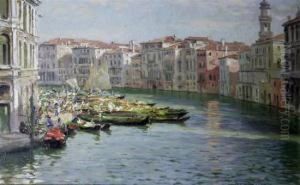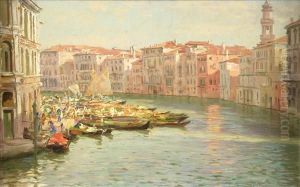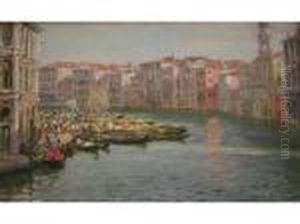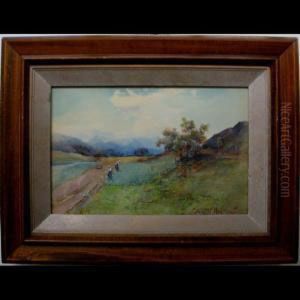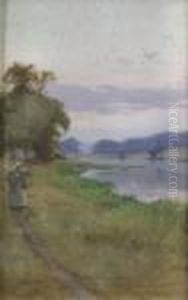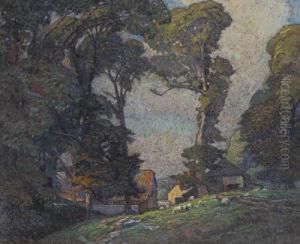Thomas Fred. Mason Sheard Paintings
Thomas Frederick Mason Sheard, commonly known as Fred Mason, was a British artist born in 1866. He is best known for his landscape and marine paintings. Mason was active during the late 19th and early 20th centuries, a period that was rich in British art with movements like Impressionism and Post-Impressionism influencing the art scene, although Mason's work tended to remain more traditional in style.
Mason's artistic journey began in his hometown of Huddersfield in West Yorkshire, England. His father, also named Thomas, was a painter and decorator, which provided the young Mason with an early exposure to artistic practices. Despite the lack of detailed records about his formal training, it is evident that Mason developed a strong foundation in painting, as reflected in his later works.
During his career, Mason exhibited at various prestigious venues, including the Royal Academy and the Royal Society of British Artists. His works were also shown in regional galleries throughout the UK, which helped him to gain recognition beyond his local area. The landscapes and maritime scenes he captured often reflected the British countryside and coastlines, showcasing his skill in rendering natural light and atmosphere.
Mason's paintings are characterized by their detailed brushwork and vibrant use of color. He had a particular affinity for the sea, with many of his paintings depicting ships and boats navigating the waters. These works often conveyed a sense of the grandeur and power of the ocean, a theme that resonated with Victorian and Edwardian audiences.
Despite his talents and the recognition he received during his lifetime, Thomas Frederick Mason Sheard did not achieve the same level of fame as some of his contemporaries. After his death in 1921, his name became less known in the art world, and today he is considered a somewhat obscure figure in British art history. Nevertheless, his paintings continue to be appreciated by collectors and art enthusiasts, particularly those with an interest in maritime and landscape art from the turn of the 20th century.
